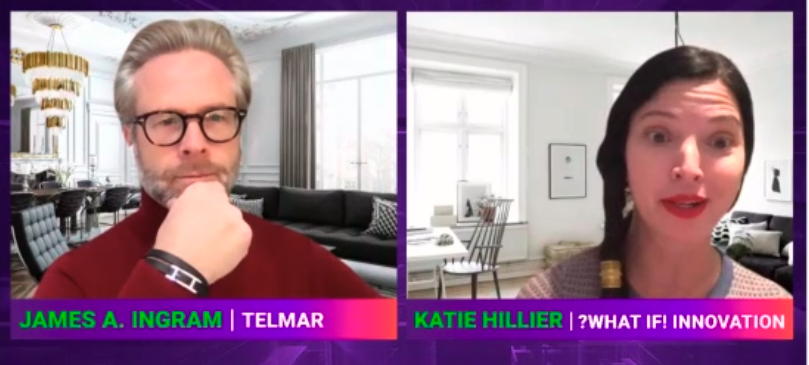
EASTON, CT -- In one of the most mind-expanding
sessions of i-com's multi-week Global Forum for Smart Data Marketing, the case was made for elevating a new field of social science analyzing how people increasingly live in "digital villages," and
what implications that has for marketing.
Discussing what they called "digital anthropology," its champions said smart data can answer the who, what, when and where of people's time spent
online, but the new science is needed to explain the "why."
"Big Data is incredible. It gives us insight at scale. It gives you a lot of what people are doing and where they are going,"
explained Katie Hillier, principal director of innovation and The Living Learning Lab at Accenture's ?WhatIf! unit, during the i-com session co-presented with Telmar CEO James Ingram.
Insights
generated from digital anthropology -- what Hillier dubbed "thick data" -- "gives you the why," she said, explaining that the goal is to bring the two disciplines together to create a more perfect
understanding and insights for marketers.
advertisement
advertisement
"How do you bring together the thinking of an anthropologist with the mind of a data scientist to understand a human?" she asked
Ingram, who
is an entrepreneur and investor separate from his Telmar role, has a side hustle called LiiV that is backing the development of digital anthropology, and includes UNESCO among his partners.
He
provided a powerful anecdote that he learned from UNESCO to explain the rationale for applying the social science of anthropology to studying the digital villages modern people spend their time
in.
As the story goes, a big humanitarian initiative invested huge sums to develop an innovative "solar pot" capable of cooking food without fire, and tried distributing it in Africa, but it
failed because the plan missed an important cultural insights about how, when, where and why people cook in African villages.
"Those cultures cook at night, so the solar pot doesn't work," he
said, adding that "they couldn't change the culture. They wanted the fire."
While Ingram or Hillier didn't provide a detailed plan for introducing digital anthropology to Madison Avenue, they
said they were working with UNESCO to reach out to the academic community to build a curriculum for educating future marketing pros about it. And of course, doing public speaking like the i-com
session to generate awareness about it.
"It's just in its infancy," Ingram acknowledged, "So we're out there advocating and promoting."